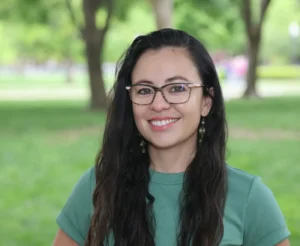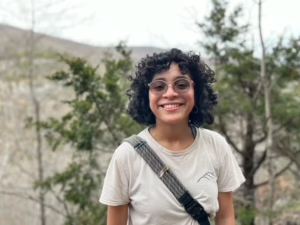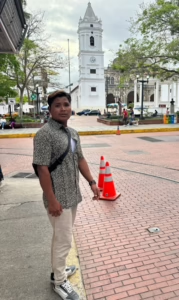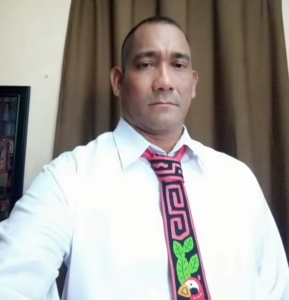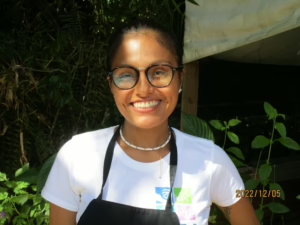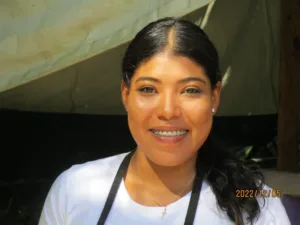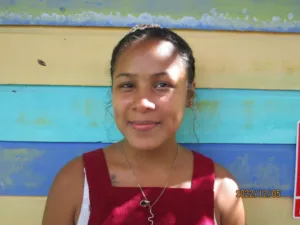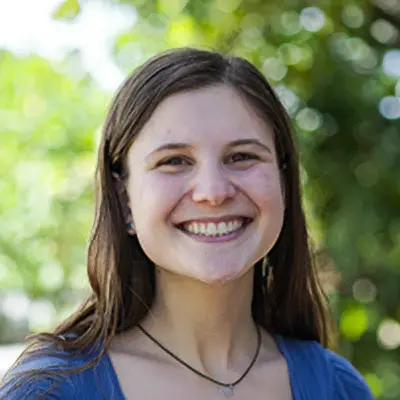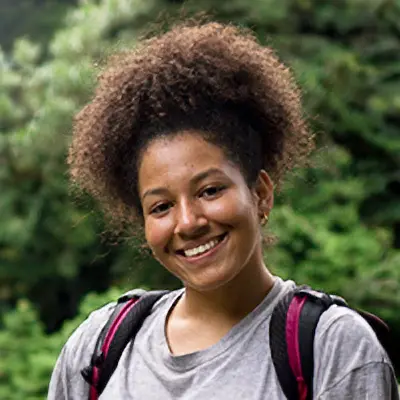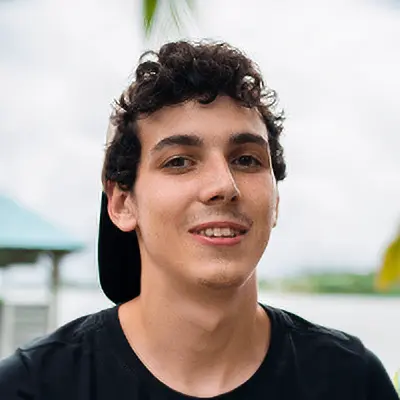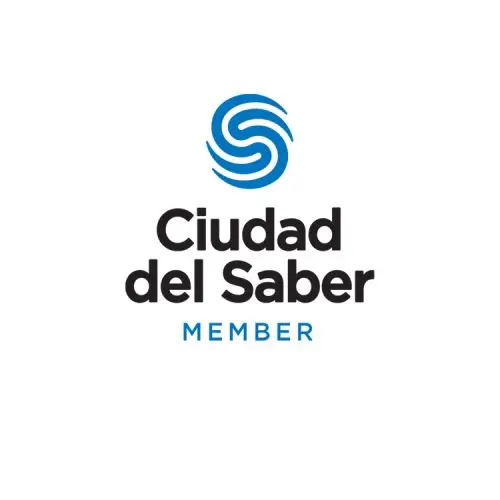Panama
Study Abroad in Panama
Have you ever wanted to wake up to the sound of tropical birds greeting the day, or see the sunrise over the warm waves of the Caribbean? Are you ready to snorkel among coral reefs and mangrove forests, hike through lush green rainforests, and catch a glimpse of a lounging sloth?
Whether you’re an experienced traveler or looking for your first trip to another country, studying abroad is an important component of your college career. Living abroad gives you the opportunity to explore new places and learn about different cultures, gaining important global perspectives, discovering new things about yourself, and building lifelong friendships.
Our programs in Panama take place in the diverse environments of the Bocas del Toro archipelago – coral reefs, mangrove islands, inland rainforests, and sandy palm beaches. Courses and fieldwork focus on key environmental issues faced here such as climate change, biodiversity conservation, tourism impacts, and ecosystem health. Climate change and increased tourism on the islands have led to ecosystem and natural resource degradation while also threatening islanders’ traditional livelihoods. Our research on the environmental impacts of tourism and development on the natural ecosystems in Bocas provides the community with data necessary to support more sustainable policies and protect the beautiful islands so many call home.
Programs
Tropical Island Biodiversity Studies
See Program Costs
Program Costs
- Tuition
- Room & Board
- Total
Tropical Island Ecosystems: The Human Impact
See Program Costs
Program Costs
- Tuition
- Room & Board
- Total
Where You'll be Living
The Center, once a hotel, lies among the slender palms and warm waters of Isla Colón. You’ll live, study, relax, and enjoy communal meals with your cohort, here. Across the street, you’ll find a beach with waterfront access for swimming and paddleboarding. The laidback hub of Bocas Town is a short taxi ride away, with access to shops, restaurants, and a vibrant culture that is as unique as the mix of people who live here.
- Dorm living in ~4-person bunkrooms
- Indoor/outdoor classroom and study space
- Student lounge space
- Casual al-fresco dining area and on-site cooking staff
- Swimming pool, kayaking, paddleboarding, and snorkeling
Know before you go
Click on each dropdown to explore details about life at this Center, and determine if it’s the right fit for you.
Program experience
Living Conditions & Daily Life
Students participate in structured classes and field activities from 8 AM to 7 PM most weekdays, with occasional weekend commitments. Evenings and weekends generally offer free time for personal exploration, relaxation, or community engagement within the Bocas Archipelago. A daily curfew is enforced throughout the program.
Students typically remain in the Bocas area on weekends. Independent travel beyond Bocas is limited to mid-semester break, when the SFS Center is closed and students must travel independently. Summer programs have more limited free time.
Students live in shared dormitories with communal dining facilities, where meals are provided. While students enjoy some privacy and independence, the center environment is communal in nature and students should expect to be in the company of others, including staff and faculty, for a majority of their program.
Physical Readiness
Field activities are physically demanding, including snorkeling and swimming in open ocean waters (20 minutes to 2 hours) without life vests, hiking in tropical forests (up to 3 hours), and conducting research in marine and terrestrial settings. Students must pass a swim evaluation upon arrival and comfortably carry gear weighing up to 20 pounds. A baseline level of fitness is essential. Panama’s climate is tropical—hot, humid, and frequently rainy. Mobility-impaired accessibility is limited due to terrain and activity demands.
Travel & Transitions
Students are based at a central field station in Bocas del Toro, with frequent short boat rides to neighboring islands and coastal areas. Boat travel can be uncomfortable, noisy, and physically taxing, especially for those with spine, neck, or joint issues.
Location & Culture
Program Location & Natural Environment
The program is based in the island town of Bocas del Toro, a dynamic tourist hub offering rich sensory experiences from vibrant biodiversity to bustling town life. Students quickly become familiar with local amenities and favorite walking routes, cafes, and spots around town. Expect high humidity, daily rain during rainy seasons (May–August, November–January), and frequent muddy conditions on roads and trails. Wildlife encounters with insects, reptiles, and marine life are common.
Cultural & Linguistic Differences
Panama’s cultural diversity includes Indigenous, Afro-Caribbean, Chinese, and Spanish influences within a conservative, predominantly Catholic society. Students engage with local communities, adapting to Panamanian customs and social norms. Public displays of affection or open expressions regarding sexual orientation and gender identity may be culturally discouraged.
Spanish is Panama’s primary language; proficiency varies outside tourist areas. While many people in Bocas speak some English, students benefit from learning basic Spanish phrases for daily interactions. All SFS classes are in English, and language instruction is offered to support cultural immersion.
health
Allergies & Dietary Preferences
Typical meals include rice, beans, vegetables, eggs, and chicken, with limited gluten-free alternatives available. Due to local conditions, alternative protein options may be scarce. Students with dietary restrictions or allergies must proactively communicate their needs. While most preferences can be accommodated at the SFS Center, cross-contamination accommodations for advanced allergies abroad may not be feasible. Students with severe or life-threatening allergies and/or strict dietary requirements must consult with medical professionals and [email protected] before applying.
Required Vaccinations & Health Care
SFS does not require specific vaccinations for this program. For additional recommendations, consultation with a travel medicine professional is strongly advised before departure.
Although the SFS Center does not operate in malaria or yellow fever regions, independent travel may expose students to such areas.
Medical care in remote environments can be delayed up to 24 hours. Basic medical facilities are 10 minutes from the SFS Center, and advanced care is approximately 2 hours away in David or Changuinola. Critical emergencies may require air evacuation to Panama City.
Routine in-person medical and counseling services are not feasible during the program. Students must bring a full supply of any prescription medications, including psychotropic medications, for the entire duration of the program, as local refills may not be available without prior arrangements.
PRogram Costs
Study abroad is an investment in yourself – you’ll return home with new experiences, skills, knowledge, and friendships that will stay with you for the rest of your life. SFS program costs cover a variety of expenses, including:
- Pre-program advising and on-site orientation
- Tuition and research fees
- Housing at the field station and on excursions
- Daily meals and snacks
- Airport transfers (for arrival/departure)
- Field excursions and cultural activities
- Student success and wellness team on site
- 24/7 mental health and well-being support
- Emergency evacuation and repatriation insurance
- Official transcript processing
Financial Aid
We know cost can be one of the biggest barriers to studying abroad. At SFS, we’re committed to making our programs accessible to students which is why we award a generous amount in need-based financial aid each year. Our Admissions Team has worked with thousands of students and are here to answer your questions about the SFS aid process, aid available through your home school, and funding from external sources.
SFS Financial Aid: Need-based aid packages typically consist of a combination of scholarships, grants, and zero- and low-interest loans. SFS matches Federal Pell Grant funding for students applying to an SFS semester program.
Home School Aid: Be sure to ask your home school study abroad office or financial aid office what financial aid resources might be available to support your study abroad experience.
External Funding Opportunities: Organizations such as the Fund for Education Abroad or the Gilman International Scholarship Program award scholarships to students going abroad. These can be a great opportunity to reduce the cost of your program even more.
Research
Research at the SFS Center for Tropical Island Biodiversity Studies focuses on environmental conservation, tropical ecology and natural resource management approaches in the face of threats like climate change and impacts from increasing tourist activity. Students and faculty engage with Indigenous entrepreneurs, NGOs, fishers, farmers, and business owners as they explore sustainable tourism models and the future of these fragile ecosystems and the surrounding communities.
Our research focuses primarily on the following themes:
- Rainforest and marine biodiversity
- Tourism impacts
- Ecosystem health
- Community livelihoods and perceptions
- Climate change impacts
- Marine protected areas
Community
SFS is an active part of the Bocas del Toro community, where we have been based since the early 90s.
We have built long-term, collaborative relationships in the communities around the Center, and developed our research plans based on the environmental issues they and the surrounding ecosystems face. Throughout the program, students organize a snorkel and swim club for children, work to help support local Indigenous entrepreneurs, and take part in other projects such as urban birding festivals and educational talks. Students attend area events and festivals, frequent the shops, markets, and restaurants of Bocas Town, and compete in a local volleyball match.
At the end of each semester program, we host a Community Research Night where select students will present their research findings to the community. SFS research data is shared with the community, local NGOs, and the Panamanian government.
Program Partners
SFS is committed to providing robust learning and research opportunities for our students. One way we do this is through in-country collaborations with a variety of organizations, community groups, and government agencies. We support our commitment to these groups by sharing our research findings and contributing to shared goals.
Featured Partner: Ciudad del Saber (CDS)
Just a few minutes from Panama’s city center and across from the Panama Canal, the 120 hectares and over 200 buildings of the former Clayton military base have been transformed into the City of Knowledge. Here, entrepreneurs, scientists, thinkers, artists, community leaders, as well as experts from the government, NGOs, and international organizations work together to develop initiatives that trigger social change.
City of Knowledge is an innovative community that imagines, researches, learns, teaches, experiments, invents, creates and inspires; proving that a different Panama and a different world are possible. A private, non-profit Panamanian organization is responsible for leading this project: The City of Knowledge Foundation.
Meet the Panama Team
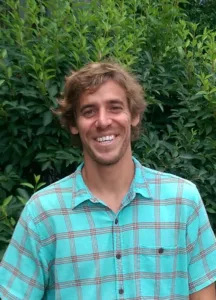
Leon Mach, PhD
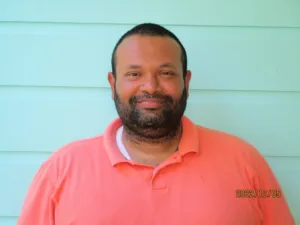
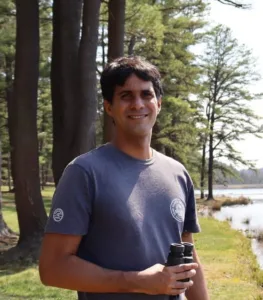
Daniel Medina, PhD
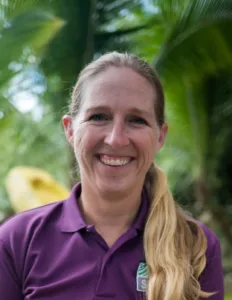
Holly Hummel, M.S.
